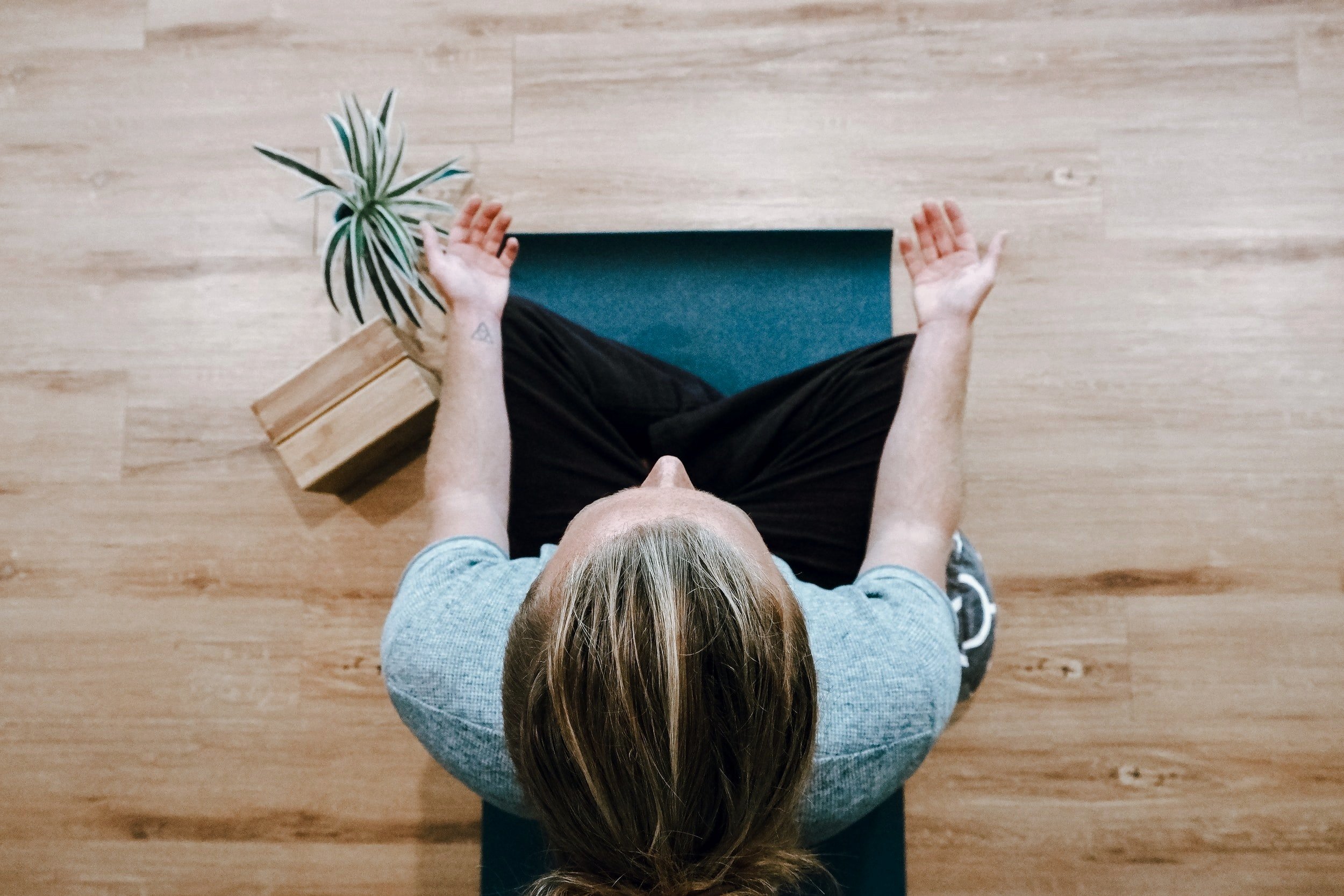Yoga Therapy
“The practice of yoga brings us face to face with the extraordinary complexity of our own being”
“The practice of yoga brings us face to face with the extraordinary complexity of our own being”
You might have stumbled onto this page because you are looking to soothe your anxiety. Maybe you are lost in thought, your gaze is fixed, and your heart is racing. You simultaneously desire to step off this hamster wheel of thoughts yet are compelled to remain. Most people will experience anxiety at some point in their lives, drawing their full attention to a uniquely stressful situation. Yoga Therapy offers a refreshing counterpoint to this anxious chaos. Instead of adding more and more to our already full lives, it encourages us to turn inwards and let go of the filters through which we see the world.
Going back to the origin of yoga thousands of years ago, all yoga was in theory a therapeutic practice. However, in the way that yoga has evolved and often been stripped down to a fitness exercise, not all yoga as it is being shared today is therapeutic, especially when it comes to mental and emotional health. Traditionally, yoga was also shared one-on-one (one teacher to one student), to ensure the practices were suitable for the individual.
Many group yoga classes offer a stronger sense of community and will teach you general yoga techniques, but it’s typically not feasible to address individual concerns or offer individualized practices.
Yoga Therapy differs from group yoga classes in a few ways:
sessions are conducted one-on-one or with a small group that has one therapeutic goal (ie. emotional balance, anxiety, trauma-informed, etc)
the practices shared with you are tailored to you and what you are experiencing in your life right now
the yoga adapts to you (how much time you have, what you can do, what resonates with you), not the other way around
Both group yoga classes and individual sessions can be beneficial! It all depends on what you’re looking for and what your intention is.
Repose offers individual yoga therapy as well as in groups.
Depression
Chronic pain
Chronic health conditions
Stress mismanagement
Emotional dysregulation
Generalized Anxiety Disorder
Obsessive-Compulsive Disorder
Somatic concerns
Insomnia
The Facts: Yoga therapy was developed after several research studies indicated the positive effects of yoga on people suffering from depression and chronic pain. Therapeutic yoga uses traditional yoga postures to treat chronic health conditions. Most practitioners that use therapeutic yoga are also trained in the use of other therapeutic interventions
Yoga Therapy is for everyone! It is for people of all ages, all genders, all experience levels, and all walks of life. If you are a trained yoga teacher, someone that is skeptical about mind-body therapy or someone that has dabbled in the practice. From novice to expert, Therapeutic Yoga molds its delivery to the student it is serving and takes form to the experience and comfortability of the student. Your yoga instructor will work with you to determine a treatment plan that is tailor-made for you and matches your personal comfortability.
Whether practicing static postures or moving with the breath, yoga poses help us discover the mind-body connection. Static poses draw our attention away from intrusive thoughts and towards any physical sensations, including the space we occupy in this world. The stillness of static postures offers us the opportunity to be aware of our bodies and keeps us grounded in the moment.
Movement in yoga is generally aligned with the breath and reconnects us with our active self, rediscovering our range of motion and, in time, accepting any limitations. Additionally, there are yoga sequences that focus on movement while breathing within a specific breath count. This movement or state of flow can lead to a transformative connection within ourselves using the mind, body, and breath.
Similarly, breath awareness practices commonly used in yoga help us instantly focus on the present moment because to focus on the breath is to be in the present. And yet, even when we become aware that our attention has moved away from the breath, it is in that precise moment, we are in the present.
*Client acceptability and quality of life – telepsychiatry compared to in-person consultation. (2006). Journal of Telemedicine and Telecare, 12(5), 251–254. https://doi.org/10.1258/135763306777889028
If you feel like you may do better in a more intimate 1:1 setting, explore our private session options! Our yoga, art and dance therapists can offer you individualized care that caters to your personalized needs.
